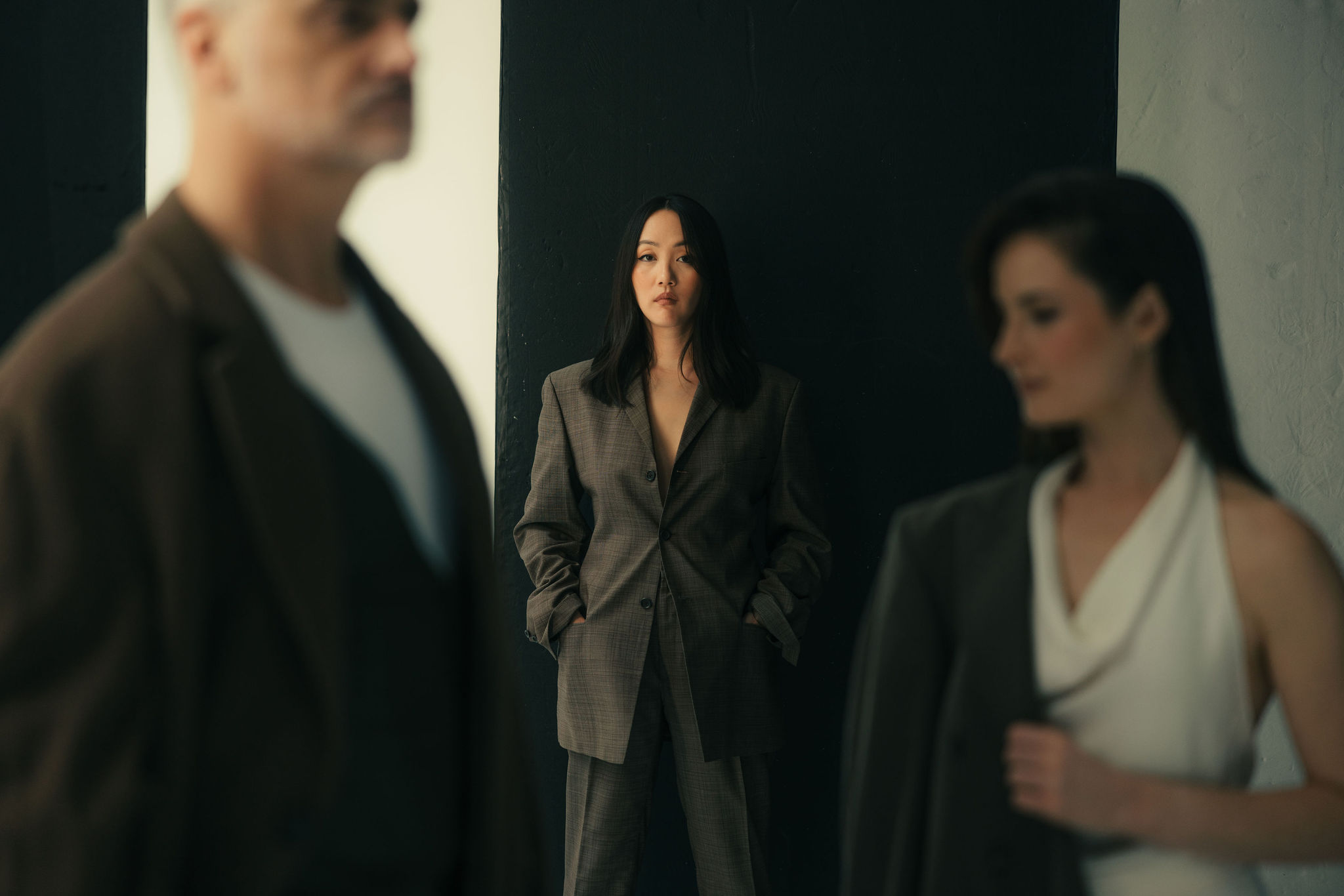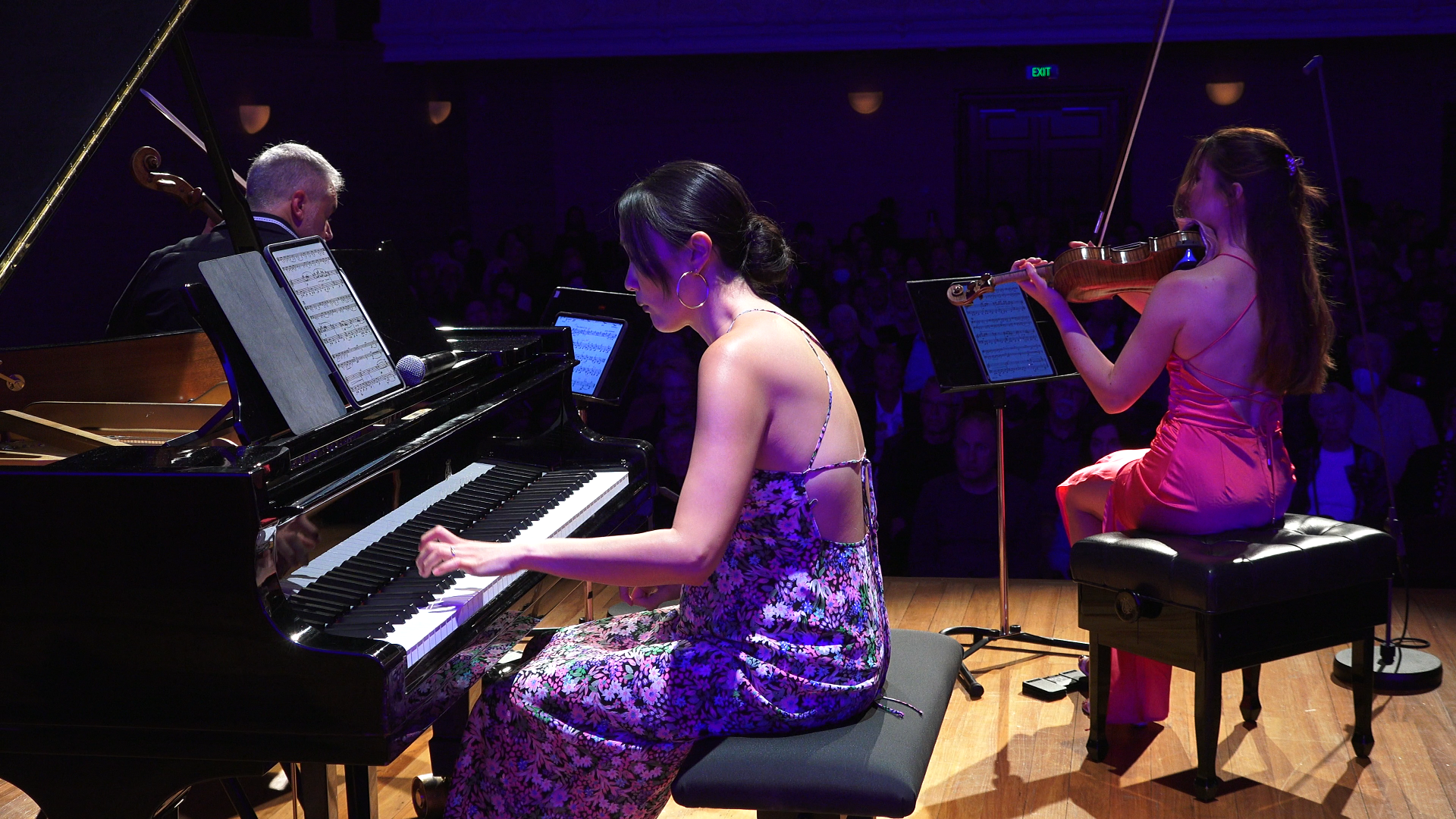Martin Lodge’s new, short Nga Whetu Hou was a beautifully crafted response to the sonorities of taonga puoro and left me wanting more. It was quite a toccata, with its dizzying rush of muted strings against delicious piano chords that I yearned to savour up close; and that opportunity eventuated in an evocative interlude.
– William Dart, NZ Herald
After years of being a cultural institution in Q Theatre’s Loft, NZTrio has moved to Auckland Art Gallery.
The light-filled North atrium is a haven for experiencing afternoon drifting into evening with Alfredo and Isabel Aquilizan’s suspended ceiling sculptures of cardboard cities tumbling from upturned dinghies perfectly echoing the torrents of musical notes below.
However, the venue has disadvantages. With the audience wrapped around the musicians, sight lines and acoustics suffer on the peripheries. I missed the lively interaction between violinist Amalia Hall and cellist Ashley Brown, while the back of Somi Kim’s magnificently sequined gown was no compensation for seeing this remarkable pianist in full action.
This second instalment of NZTrio’s Tectonic series, Impact, opened with Brown talking of “slightly fraught relationships between countries”, placing will-o’-the-wisp Frank Bridge miniatures against two local commissions.
Martin Lodge’s new, short Nga Whetu Hou was a beautifully crafted response to the sonorities of taonga puoro and left me wanting more. It was quite a toccata, with its dizzying rush of muted strings against delicious piano chords that I yearned to savour up close; and that opportunity eventuated in an evocative interlude.
The delicate patchworking of Ross Harris’s 2006 Senryu suffered, alas, from my vantage point.
The first major offering was Rebecca Clarke’s 1921 trio, a score of remarkable passion, well caught, but prone to blandness when the mood turned pastoral.
After interval, Brown talked of the Russia-versus-America cold war.
Here, Russia won, with Alfred Schnittke’s Piano Trio. The composer’s repeated “Happy Birthday” phrases, presented in 50 shades of sweet and sour, nominally celebrated the centenary of composer Alban Berg, but also caught life on the edge in pre-Glasnost USSR.
After Schnittke’s harrowing, almost cinematic Adagio, a trio by Daniel Schnyder was thin stuff, its lengthy first movement determined to make three classical musicians sound like a seasoned jazz trio. And they did, but never have I heard so many notes say so little.

